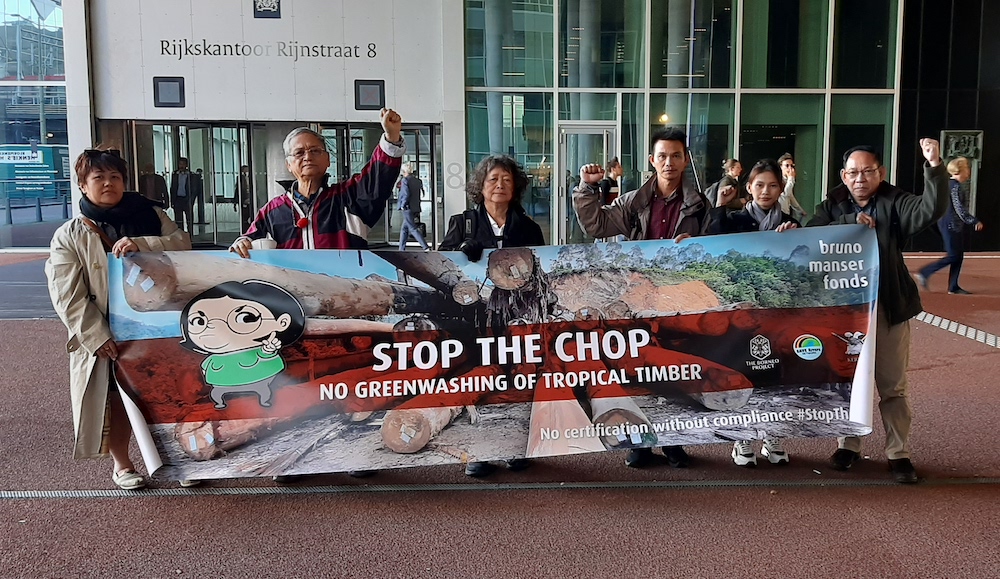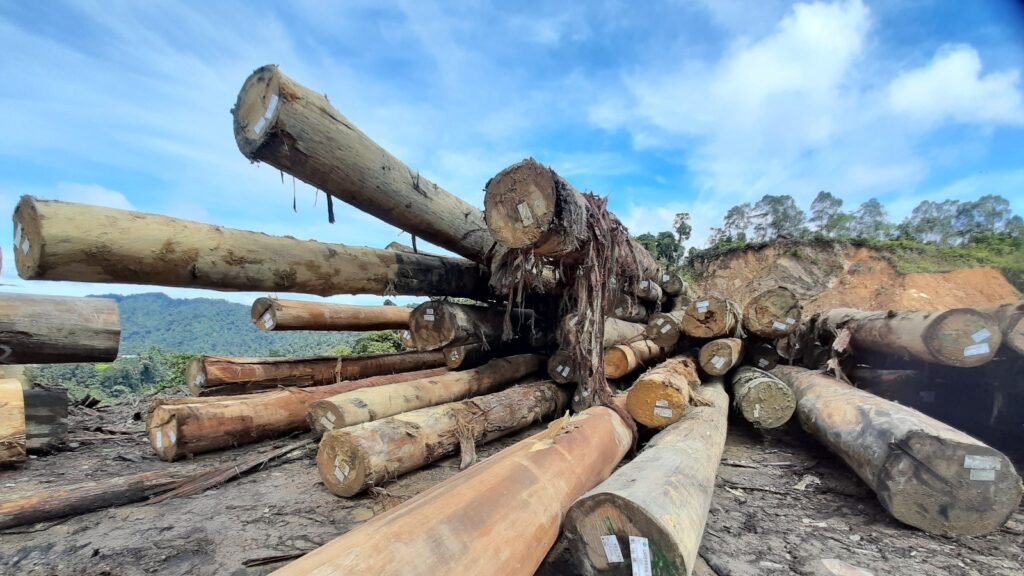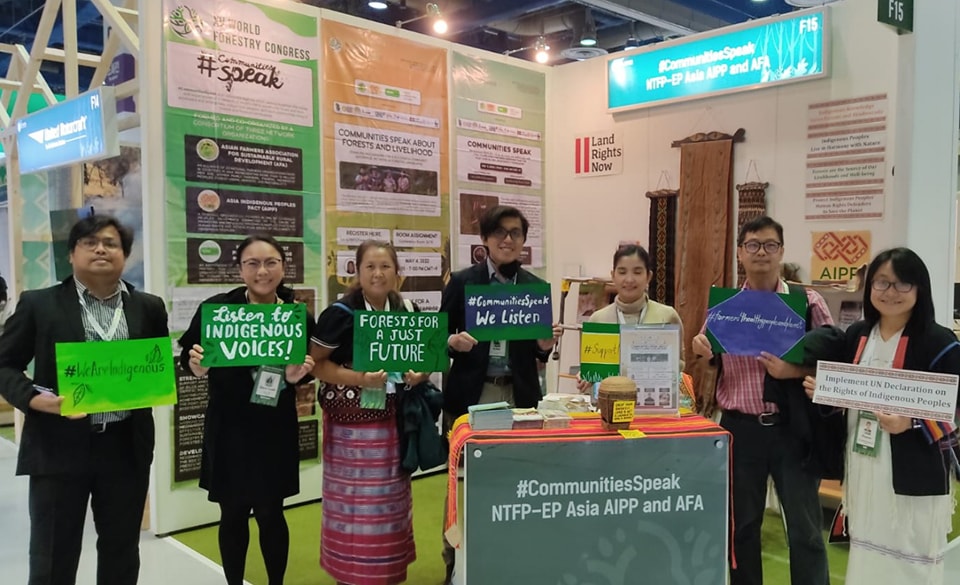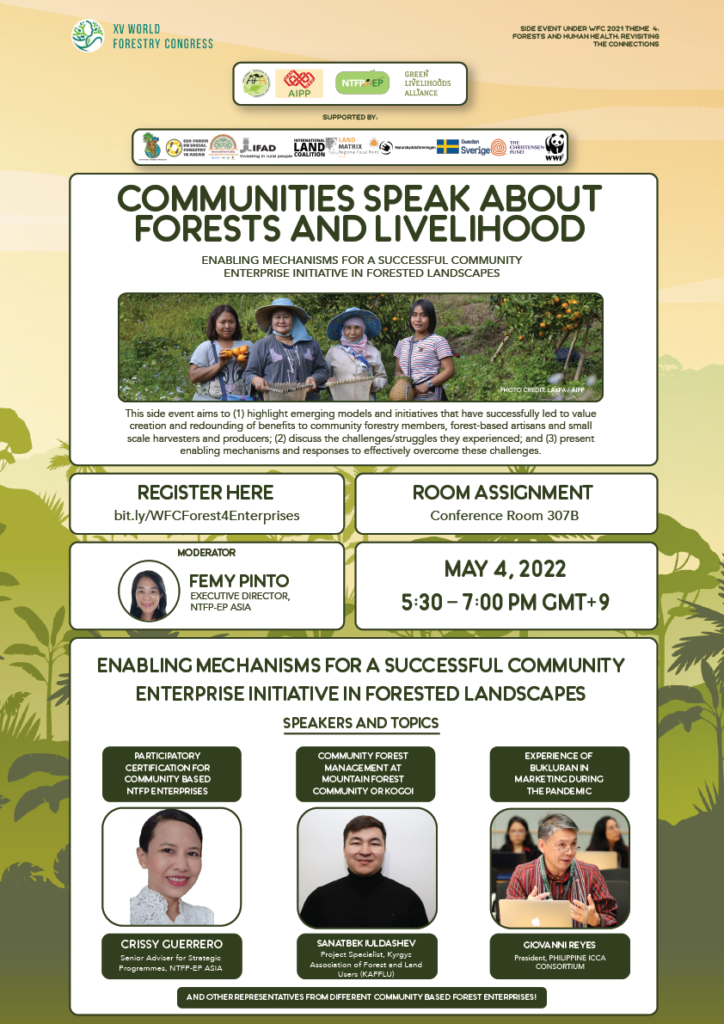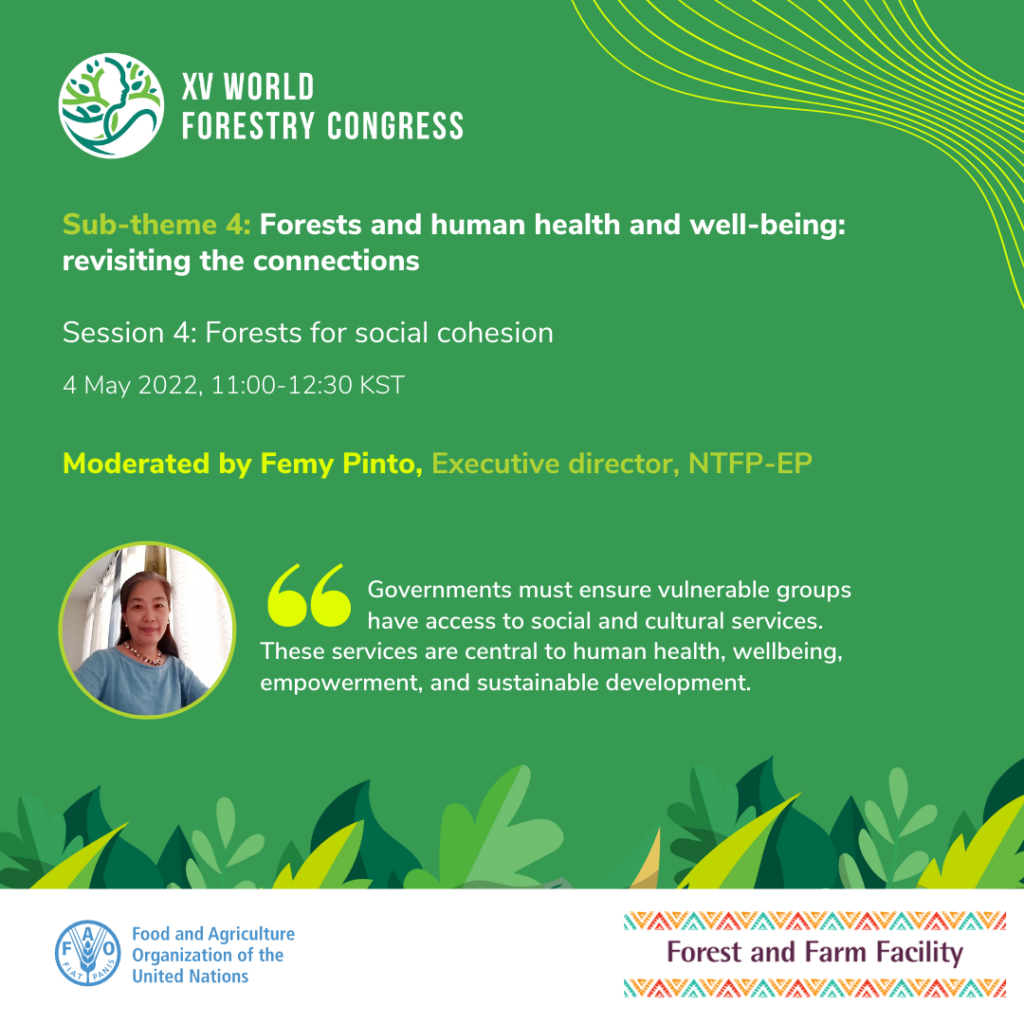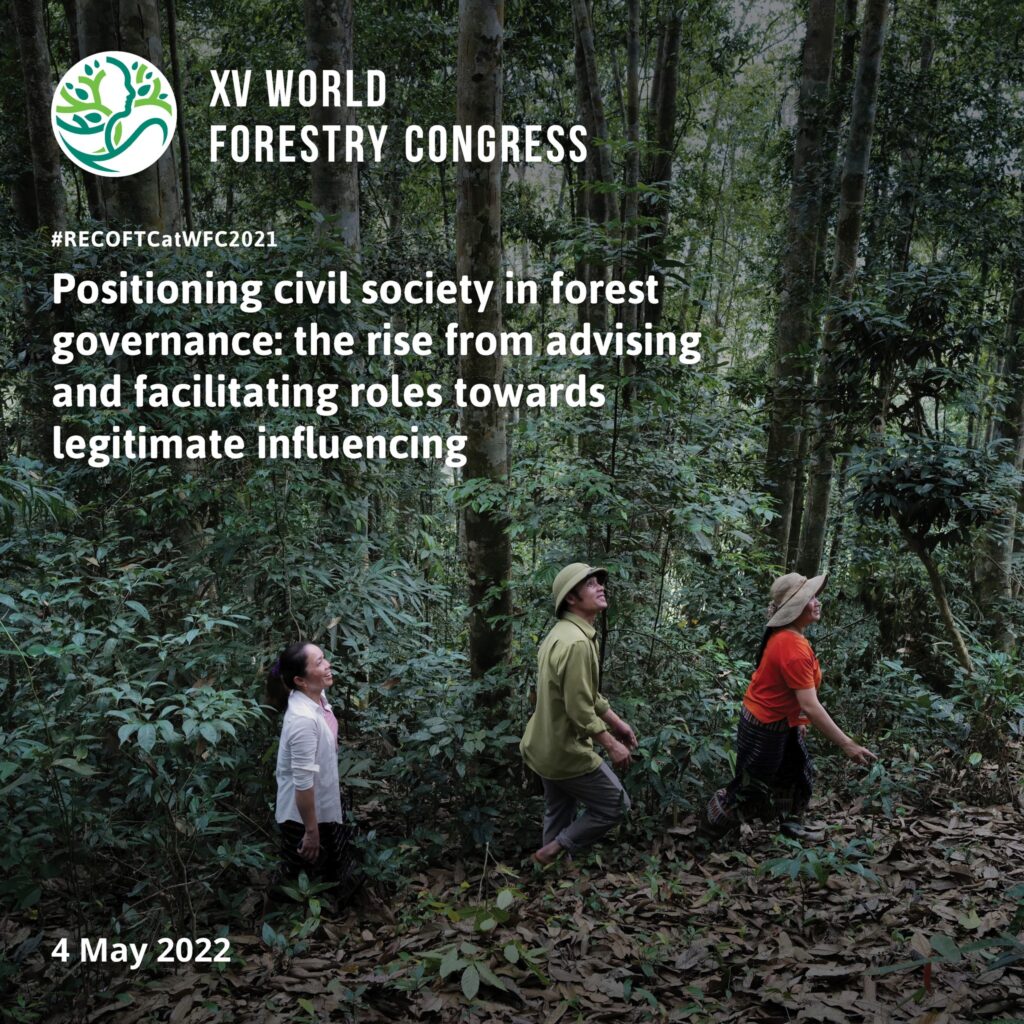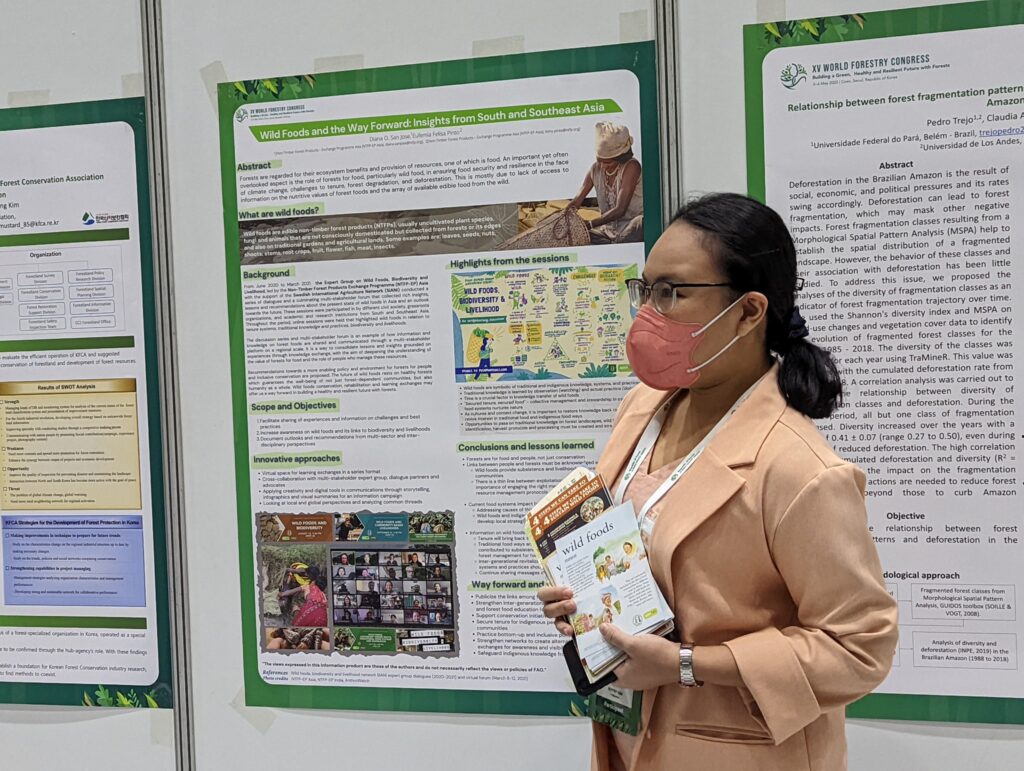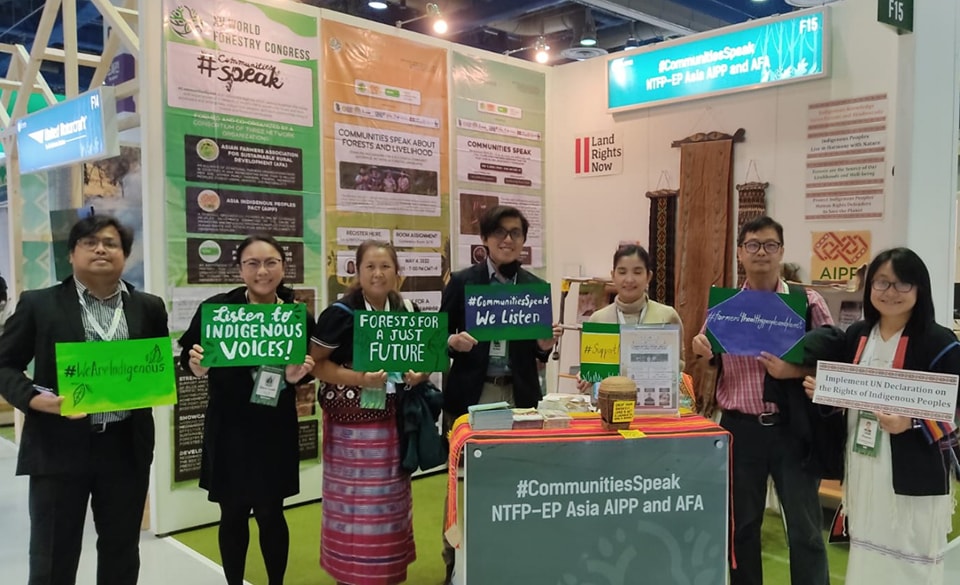Indigenous delegates from Malaysia visit the Netherlands, top importer of MTCS certified timber, to raise concerns about the certification scheme
This article was originally published on The Borneo Project.
(THE HAGUE / NETHERLANDS) An Indigenous delegation from Malaysia is currently in the Netherlands to speak to the Dutch government about suspending its endorsement of the Malaysian Timber Certification Scheme MTCS. The request is based upon community concerns about inadequate consultations and an abusive lawsuit against a Malaysian NGO. The Netherlands is a key timber consumer of Malaysian hardwood.
For the past two days the Malaysian delegation, which includes representatives from Indigenous and environmental NGO SAVE Rivers and Penan organisation KERUAN, have met with government representatives, politicians and civil society in the Netherlands. The Dutch government signalled its interest in starting a review of the scheme in response to the delegation’s serious concerns and experiences with MTCS.
Laki Weng from the Penan village of Long Adang, which borders Samling’s MTCS certified Ravenscourt Forest Management Unit (FMU), shared his story: “Samling’s logging activities affect our livelihood: we have no more timber to build houses. The logging also causes erosion, water pollution and floods. Our communities are not aware that our area is MTCS certified as we have not been properly consulted. Worst of all, the Penan village of Long Tevenga is not even on the map of the FMU. I am very happy to see that the Dutch government is willing to meet us and to listen to us. In Malaysia, our concerns are not
considered serious enough, we would never get the chance to present them to the
government.”
The Netherlands is the number one importer of MTCS certified timber: 71,800 m3, or 28% of the total export volume of MTCS timber, went to the Netherlands in 2020. The wood is sourced by the Dutch government for housing construction. The government endorsed the MTCS in 2017 only after the Malaysian government addressed outstanding issues concerning Indigenous rights, the availability of comprehensive maps and forest conversion under the MTCS. The endorsement officially expired after 5 years and the Dutch government has yet to review the new MTCS standard from 2020/2021.
Earlier this week, NGOs sent a letter to the Malaysian Timber Certification Council (MTCC) requesting they take responsibility for the shortcomings in their scheme, particularly the lack of a functioning complaints procedure, and the Council’s inability to deal with the alleged SLAPP (Strategic Lawsuit Against Public Participation) suit against SAVE Rivers that has stalled the Conflict Resolution Procedure opened by MTCC.

